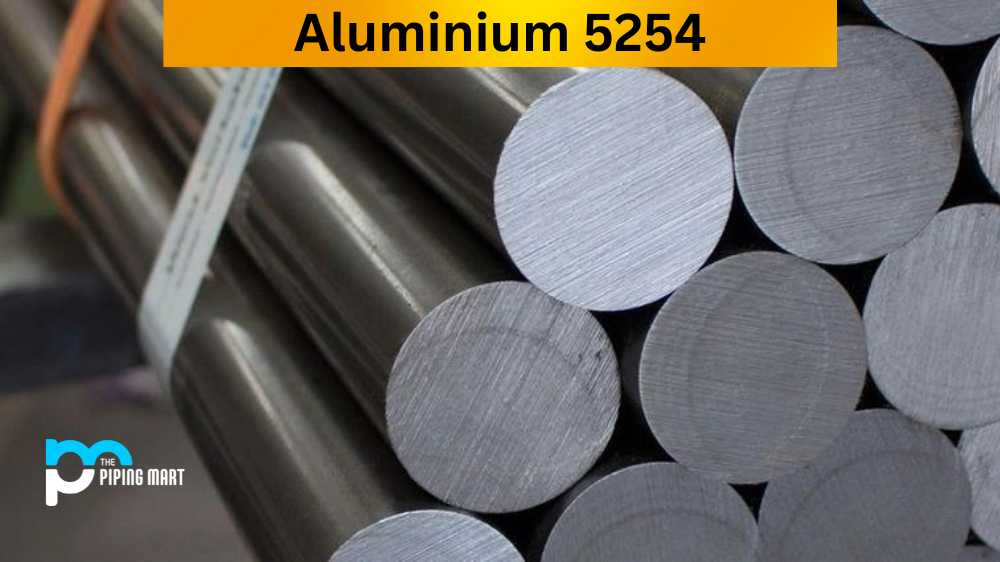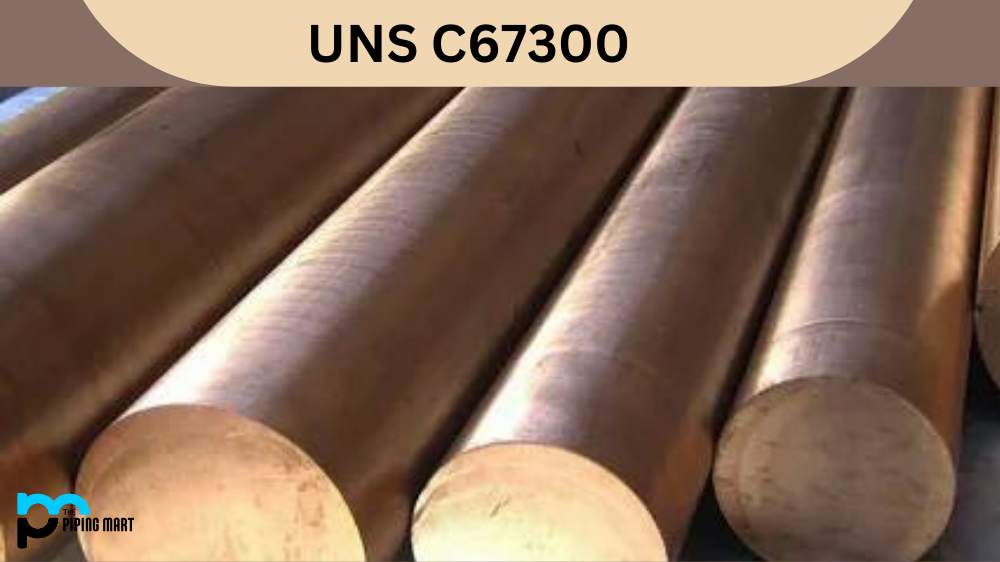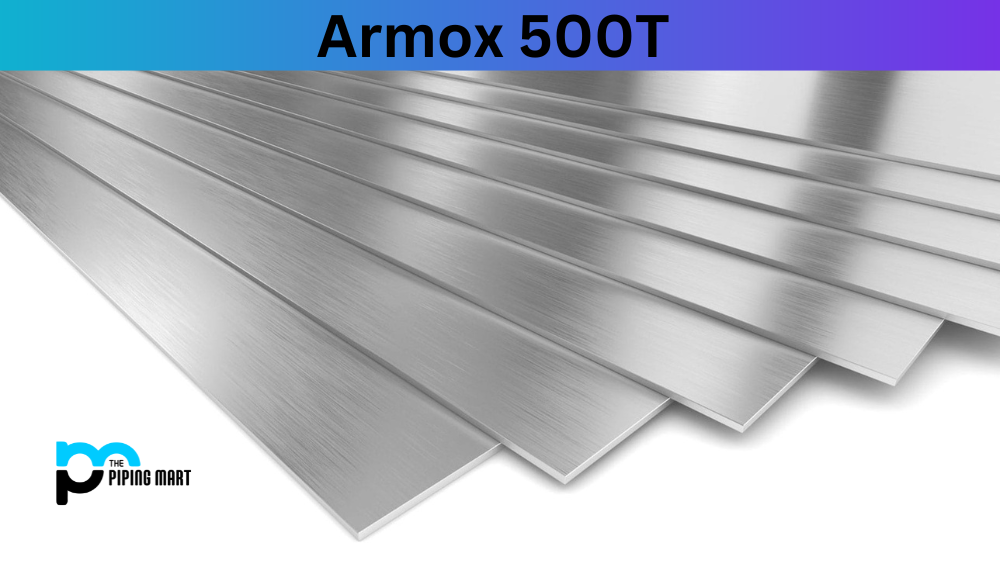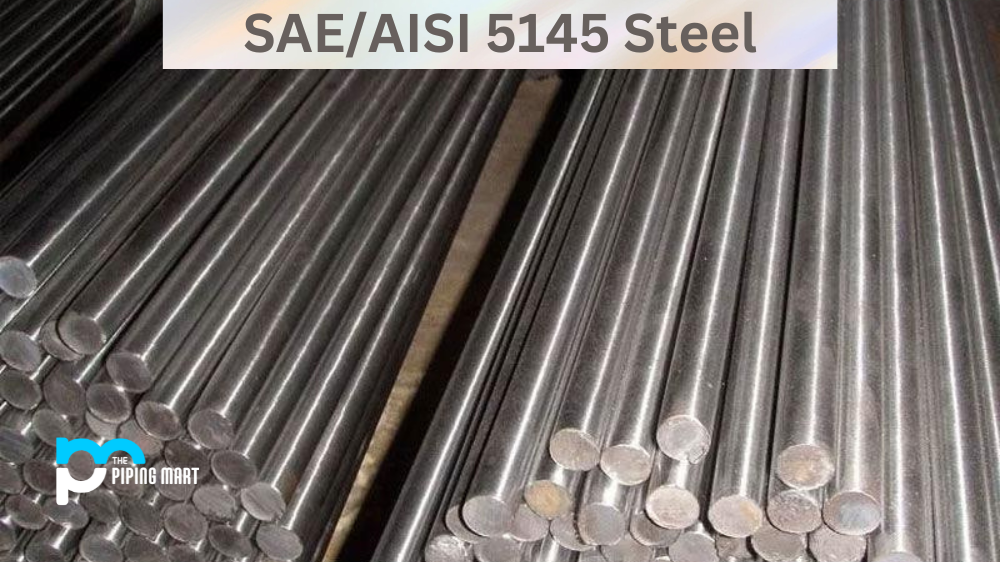Aluminium 5254 is a high-grade aluminum alloy used for many types of applications. UNS A95254 has excellent corrosion resistance, heat resistance, machinability, and weldability properties – making it one of the most versatile aluminum alloys on the market today. In this blog post, we’ll take a closer look at why 5254 Alloy is such an important alloy and discuss its uses, corrosion resistance, heat resistance, heat treatment, and machining and welding processes.
5254 Alloy Composition
| Element | Content (%) |
|---|---|
| Aluminium / Aluminum, Al | 96.2 |
| Magnesium, Mg | 3.5 |
| Chromium, Cr | 0.25 |
5254 Alloy Physical Properties
| Properties | Metric | Imperial |
|---|---|---|
| Density | 2.6-2.8 g/cm3 | 0.0939-0.1011 lb/in3 |
5254 Alloy Mechanical Properties
| Properties | Metric | Imperial |
|---|---|---|
| Elastic modulus | 70-80 GPa | 10152-11603 ksi |
| Poisson’s ratio | 0.33 | 0.33 |
5254 Alloy Thermal Properties
| Properties | Conditions | ||
|---|---|---|---|
| T (ºC) | Treatment | ||
| Thermal conductivity | 127 (W/mK) | 25 | All |
5254 Alloy Equivalent
Equivalent material to Aluminium / Aluminum 5254 alloy include ASTM B209 alloy.
5254 Alloy Uses
Aluminum 5254 is used in many different industries due to its strength and versatility. It is commonly found in aircraft components, automotive parts, electronic components, construction materials (including window frames), machinery parts and many other applications where lightweight but durable materials are required.
Corrosion Resistance
Aluminum 5254 has a very high corrosion resistance compared to other aluminum alloys. This means that it can withstand exposure to harsh weather conditions such as wind, rain and snow without corroding or rusting easily. It also makes it ideal for use in marine environments since seawater won’t cause any damage over time.
Heat Resistance
Aluminum 5254 has excellent heat resistance, making it perfect for high-temperature applications such as engine components or exhaust systems. The alloy can withstand temperatures up to 350°C (662°F) before deforming or melting, which allows it to be used in some of the most extreme conditions imaginable.
Heat Treatment
Aluminium 5254 can be heat treated in order to increase its strength further by using specific heating processes such as annealing or solution treating. These treatments allow the alloy to be strengthened without compromising its fantastic corrosion or heat-resistant qualities, which makes it perfect for use in harsh environments where durability is essential, but weight needs to remain low as well.
Machining
Aluminum 5254 is relatively easy to machine compared to other aluminium alloys due to its softness and malleability at room temperature, which makes it ideal for cutting into complex shapes or intricate designs with minimal effort needed from the machinist’s part – saving both time and money during production runs.
Welding
Aluminum 5255 can be easily welded using various techniques, including Gas Tungsten Arc Welding (GTAW), Shielded Metal Arc Welding (SMAW) and Gas Metal Arc Welding (GMAW). The alloy also responds well when being joined with other metals, such as copper or steel, which allows engineers more flexibility when designing products that need multiple materials joining together seamlessly during production runs.
Conclusion
Aluminium 5254 is an incredibly versatile alloy with excellent corrosion resistance, heat resistance, machinability & weldability properties – making it perfect for use in numerous industries across the world where lightweight but durable materials are needed for long-lasting performance even under extreme conditions. By understanding how aluminium 5254 can be heated, treated & welded correctly, you ensure that your products maintain their quality over time – making them stand out from the competition & giving you an edge in today’s market!

A passionate metal industry expert and blogger. With over 5 years of experience in the field, Palak brings a wealth of knowledge and insight to her writing. Whether discussing the latest trends in the metal industry or sharing tips, she is dedicated to helping others succeed in the metal industry.




